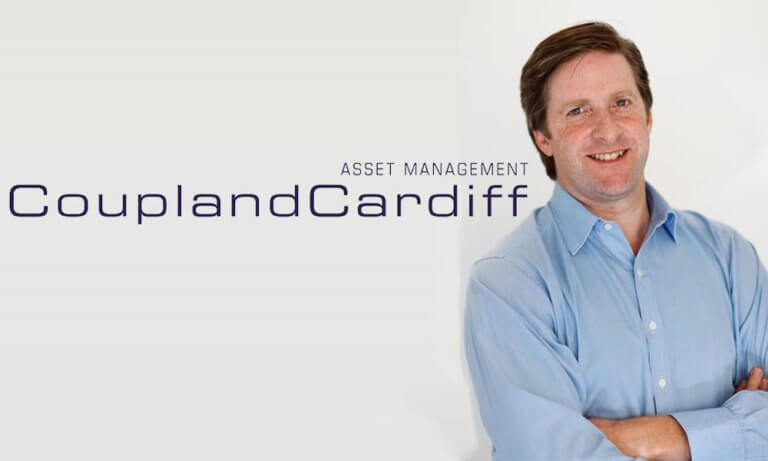Unlike other purchases, you don’t need to worry about saving loads of money to buy a car outright. In fact, Vindis, who are also VW service providers, have detailed various finance options available to you when getting your hands on your next set of wheels when it’s new — other than buying the car outright obviously.
Keep reading as they offer insight into how many finance options are open to you when in the market for a used car too…
What do you need to know when buying new?
Personal loan
A personal loan is often the cheapest method to borrow money over a long-term period and also means that you will own the car from the moment you take out the loan. Competitive fixed interest rates can be gained if you shop around for your personal loan too, while you often won’t even need to worry about paying a deposit to get the loan.
But how do they work? Well, personal loans are taken out at a bank or building society and enable you to spread the cost of purchasing a new car over a period of time that can last anywhere from one year to seven years.
In fact, according to a survey by WhatCar? a personal loan is the most popular way to finance a new vehicle, with a third of those who were involved in the motoring publication’s poll saying they favoured this finance option over all others.
Other benefits of choosing a personal loan to pay for your new set of wheels include the fact that you won’t need to worry about any annual mileage restrictions, as well as that you won’t need to hand the car back to the dealership once the loan is paid — thus no need to be concerned about reconditioning costs either. Make sure however that you can keep up with your payments, as any of your assets can be seized should you be unable to pay one of your installments — only your vehicle will be vulnerable to being reprocessed should the same thing happen with dealer finance.
It’s important to note that a clean credit rating will likely be required if you want to take out a personal loan too, while you’ll also beat the brunt of your car’s depreciation due to you owning the vehicle from the moment you take out the loan. Ensure the vehicle that you have your eyes on will be something that you can imagine driving for years to come, as the lender will still require you to repay the full loan even if you sell it or it gets written-off.
Hire purchase (HP)
Hire purchase — or HP — is the next simplest method of purchasing a car. Sixteen per cent of those involved in the earlier mentioned WhatCar? survey admitted they favoured this type of car finance.
After typically paying a deposit — usually 10 per cent of the car’s total value at the time of purchase — you then repay the remaining balance in monthly installments, plus interest, throughout the rest of the loan period. Once the loan is paid in its entirety, you will own the vehicle outright. Up until then, you won’t need to be concerned about any excess mileage charges and there’s no reconditioning costs to worry about either.
There are a couple of consumer rights associated with HP agreements too. You may be able to return the vehicle once you’ve paid half the cost of the vehicle and not be required to make any more payments, for instance, while your lender will not be in a position to repossess your car without a court order after you’ve paid a third of the entire amount that you owe.
You must be aware however that the vehicle is not yours until the final payment has been made. Miss a payment or a collection of them and you could well be at risk of losing the car. Likewise, you won’t have a legal right to sell the car until all payments have been made.
Personal Contract Hire (PCH)
Personal contract hire — otherwise referred to by its acronym PCH — is the leasing option of the types of car finance which are available to you. This is because you will never own the car in question when taking out a PCH plan; it must be returned at the end of the contract term.
Instead this works by paying a dealer a fixed monthly amount to use one of their vehicles. Fortunately, the costs of servicing and maintenance are both factored into this amount. Once a PCH agreement ends, you simply hand the car back to the dealer and needn’t worry about the vehicle depreciating in value.
A PCH plan is therefore a wise option for drivers you like to change their cars frequently. However, take note that you must ensure the vehicle remains in good condition during the entire time it’s in your possession and that you don’t exceed the annual mileage limit agreed at the start of the agreement — extra costs could come your way otherwise.
Personal Contract Purchase (PCP)
Ranked as the second most popular finance option when buying a new car according to the aforementioned WhatCar? poll, with 25 per cent of those involved in the poll saying they favour this technique, personal contract purchase — otherwise known as PCP — has a few similarities to hire purchase agreements. You again pay a deposit, which is often ten per cent of the vehicle’s overall value too, before paying a series of monthly installments.
However, the monthly installments will this time be actually paying for the deprecation in the car’s value during the contract period — as opposed to going towards the whole value like with HP. Once you reach the end of the contract term, you’ll be presented with three options with what you want to do next:
- Trade the vehicle in and use any GFV equity as a deposit towards getting your hands on a new set of wheels.
- Return the vehicle to its supplier — this won’t cost you anything unless you’ve exceeded your agreed mileage or fail to return the car in a good condition.
- Take full ownership of the vehicle — though for this option, you will be required to make a final ‘balloon’ payment. This amount will be the car’s guaranteed future value, or GFV for short.
In effect, with PCP the GFV is where you will be repaying the difference between what your vehicle is currently worth at the time of getting it from the dealership and the amount that it will be worth at the end of your contract, plus the cost of interest.
Take note too that the GFV will be agreed before a PCP contract begins, though so too will a mileage allowance — and any excess mileage charges will apply if you go over this limit.
There’s a few additional points to consider when it comes to PCP finance options too. You will be unable to sell the vehicle during the contract period of the PCP agreement, as you won’t own the car during this term, while some PCP contract providers will have a limit on the number of days that a vehicle can be out of the country — something that’s certainly worth thinking about if you drive abroad at least from time to time.
You’ll also be required to pay the difference between the vehicle’s current value and the payments which are outstanding if you choose to settle at an earlier date. Early settlement charges sometimes apply here too, so bear that additional cost in mind too when thinking about doing this.
What do you need to know when buying used?
While you may associate the above finance options when you’re only in the market for a new car, both HP finance and PCP finance can be used to afford a used vehicle as well — both using the same principles as discussed too. Of course, you can also take out a personal loan when looking for a way to finance a used car.
Leasing is a bit more complicated in the used car market. Some dealers will allow their second-hand vehicles to be leased, but not all of them. Many dealers will determine the amount that you have to pay on a monthly basis based on how much they expect the vehicle that’s being leased will depreciate over the finance term you have in mind. This may result in you witnessing more expensive leasing deals that you’d have expected though, as the residual values of used cars are usually more difficult to forecast and so dealers will be aiming to always cover the cost of any unexpectedly severe depreciation periods.
We hope this guide has helped you take a lot of stress out of buying your next set of wheels — all that’s left to do is to wish you a happy new (or used) car day!
























